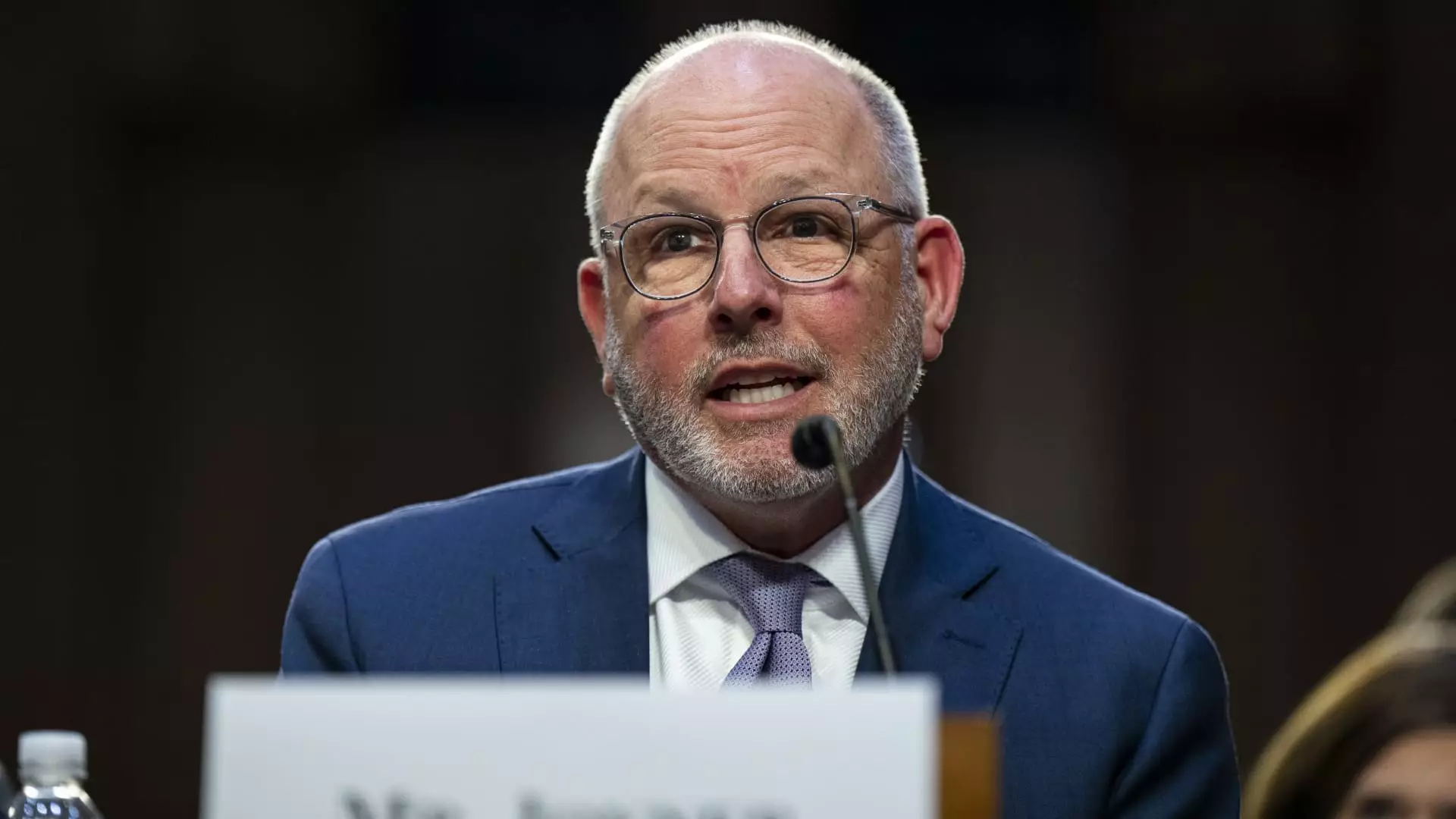In a significant turn of events within the corporate sphere, CVS Health has appointed David Joyner as its new CEO, taking over from Karen Lynch. This leadership shift comes at a critical juncture for the healthcare giant, which has faced considerable financial challenges and declining stock performance in recent months. Under Lynch’s tenure, CVS saw a dramatic drop in its share value, nearly 20% this year alone, prompting the board to reconsider its strategic direction.
The healthcare industry, particularly companies like CVS that bridge both pharmacy and insurance services, is not immune to market volatility. Elevated medical costs have put strain on CVS’s insurance division, Aetna, while the retail pharmacy sector battles diminishing consumer spending. These pressures led to a staggering 11% decline in CVS shares during premarket trading following the leadership announcement, highlighting investor concerns regarding the company’s viability and profitability.
This downward trajectory is not a recent phenomenon; in fact, CVS has revised its full-year profit projections downward for three consecutive quarters. Alongside this, CVS announced a significant cost-cutting initiative, aimed at trimming $2 billion from its operational expenses over the next few years. Such drastic measures reflect the urgency the company feels to reverse its financial misfortunes and restore investor confidence.
As CVS gears up for its third-quarter earnings report, expectations are particularly grim. The company anticipates adjusted earnings between $1.05 and $1.10 per share but also warns of higher-than-expected medical costs—a telling sign of the competitive landscape and challenges likely to persist in the near future. This message from CVS underscores the evolving dynamics within the healthcare sector, accentuated by the changing regulatory climate and economic conditions.
In its communications, CVS explicitly stated that investors should temper their expectations based on previous guidance, highlighting the persistent issue of rising medical costs in its Health Care Benefits segment. As the company prepares to reveal its third-quarter earnings on November 6, the focus will be firmly on how it manages these escalating expenses while attempting to meet market demands.
Another aspect complicating CVS’s position is the influence of major shareholders, notably Glenview Capital. Their push for strategic changes within the company—including potential restructuring of its retail and insurance divisions—suggests a growing impatience with the status quo. This scrutiny places additional pressure on Joyner as he steps into his new role.
Despite these pressures, CVS’s management has decided to retain its integrated business model, suggesting confidence in its collective value proposition. The challenge here lies in effectively demonstrating that this integrated approach can yield the necessary operational improvements and ultimately enhance profitability in a challenging landscape.
David Joyner comes to his new role with a wealth of experience in the healthcare sector. Having previously presided over CVS’s pharmacy benefits manager, Caremark, he possesses an intimate knowledge of the company’s operations and the broader industry dynamics. His deep roots in pharmacy benefit services and experience at Caremark, acquired by CVS in 2007, position him uniquely to tackle the prevailing challenges.
Joyner’s return to CVS reflects a commitment to reinvigorating its business strategy. He articulated his motivation for rejoining the company, emphasizing a desire to contribute positively to CVS’s future. His experience will likely be instrumental as he navigates the increased scrutiny surrounding pharmacy benefit managers (PBMs), particularly amidst regulatory bodies like the Federal Trade Commission, which have raised concerns about profit-inflating practices that disproportionately affect consumers.
As CVS prepares for the upcoming quarter, Joyner will not only contend with elevated medical costs but will also face increased congressional scrutiny regarding the practices of its pharmacy benefits division. Remaining ahead in a fiercely competitive environment will require both innovative solutions and effective communication with stakeholders.
Furthermore, as many seniors resume delayed medical procedures, the company must seek to enhance its Medicare Advantage margins amidst increasing patient costs. CVS executives have expressed aspirations for margin improvements in this area, which will be critical given the anticipated rise in medical expenses.
While the leadership transition to David Joyner signifies a potential new chapter for CVS Health, the path forward is laden with challenges. Joyner’s success will depend on navigating the complex interplay of market pressures, regulatory scrutiny, and the demands of an increasingly critical investor base—all while striving to restore confidence in CVS’s long-term outlook.

Leave a Reply